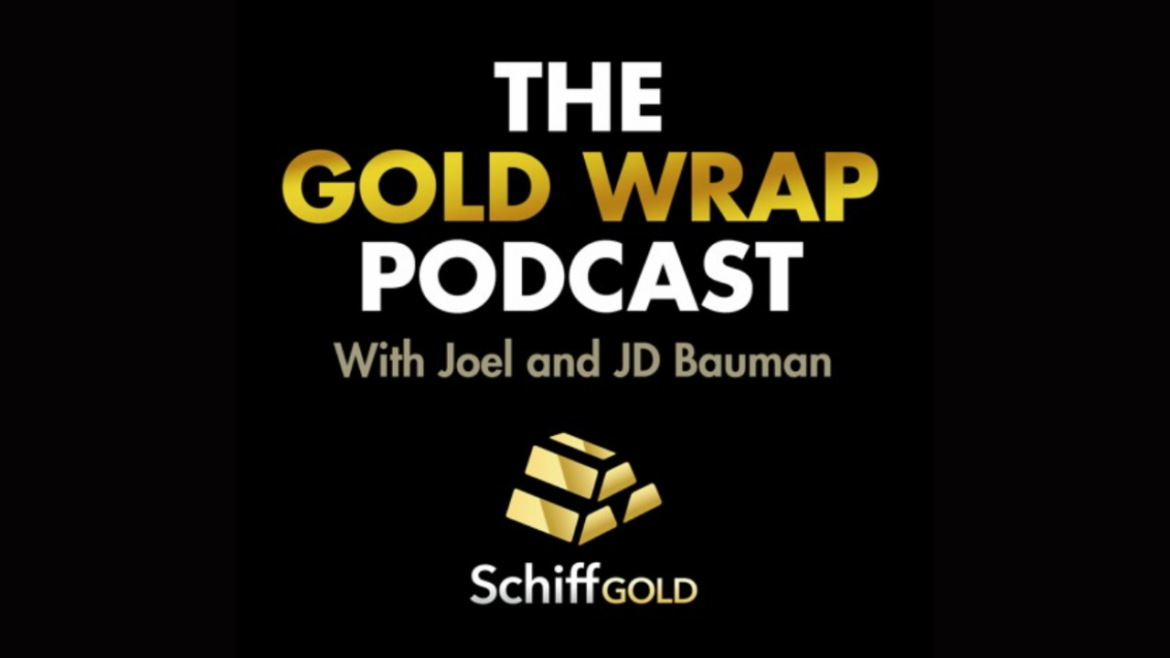Gold has all the potential to go unprecedentedly high. But silver will be gold on
Site:
Precious metals news
Jul 8, 2024 - 10:31:49 EDT
India's central bank has significantly increased its gold reserves in June, adding over nine tons, which marks the largest addition in nearly two years according to World Gold Council analyst Krishan Gopaul. This brings India's total gold reserves to 841 tons, reflecting a 37-ton increase in 2024. The substantial purchase aligns with a broader trend of central banks accumulating gold due to heightened geopolitical and financial risks. This move by India, a major gold buyer alongside China and Turkey, contributes to the ongoing rally in gold prices, which reached record highs in May. The trend is expected to continue, with about 20 central banks planning to increase their gold holdings in the coming year.
Gold prices have retreated slightly after a strong weekly rally, with the market focusing on central bank purchasing activities. While the People's Bank of China paused its gold buying for a second consecutive month, India and Poland have added to their reserves. Despite this mixed signal, gold remains near $2,375 an ounce, supported by long-term investor confidence due to economic uncertainties and geopolitical tensions. The market is now anticipating Federal Reserve Chair Jerome Powell's testimony and upcoming U.S. inflation data, which could influence expectations for interest rate cuts and, consequently, gold prices.
Gold prices experienced a slight dip from one-month highs in Asian trading on Monday as investors await key indicators on U.S. interest rates, including Federal Reserve Chair Jerome Powell's testimony and upcoming inflation data. Despite this minor retreat, gold remains near the $2,400 per ounce mark, buoyed by growing expectations of a Fed rate cut in September. The precious metal's recent gains have been driven by weak labor market data, which has increased the likelihood of rate cuts. Traders are now pricing in a 72% chance of a 25 basis point cut in September, up from 59% last week. The market's focus this week will be on Powell's two-day testimony and additional economic cues that could further influence rate expectations and gold prices.
 China's Central Bank Creates New Liquidity Tools to "Help" Monetary Policy
China's Central Bank Creates New Liquidity Tools to "Help" Monetary PolicyJul 8, 2024 - 09:23:44 EDT
China's central bank has announced the introduction of temporary bond repurchase agreements and reverse repos to enhance open market operations and maintain ample banking system liquidity. This move is seen as a step towards establishing a new interest rate corridor, with the seven-day reverse repo rate as the central guide. The new tools will have overnight tenors and interest rates set 20 basis points below and 50 basis points above the seven-day reverse repo rate. This adjustment aims to give the central bank more flexibility in managing cash conditions and interest rates, particularly in response to high demand for bonds. The change aligns with the central bank governor's recent statement about the seven-day rate's role as the main policy rate.
 MAJOR REGIONS & COUNTRIES OIL & NATGAS 2023 UPDATE: Significant Changes In Production & Net Exports
MAJOR REGIONS & COUNTRIES OIL & NATGAS 2023 UPDATE: Significant Changes In Production & Net ExportsJuly 7, 2024
When the ENERGY CLIFF begins, the Regions and countries with the highest net energy imports will be negatively impacted the most. In this update, I discuss significant the changes in production and net exports in 2023 vs 2022. There was clearly one BIG WINNER...
In 2023, the U.S. spent 1.04 trillion dollars on Medicare, which is over $3,000 per citizen. For an inefficient, problem-ridden program, that number is difficult for Americans to stomach.
The analysis below covers the Employment picture released on the first Friday of every month. While most of the attention goes to the headline number, it can be helpful to look at the details, revisions, and other reports to get a better gauge of what is really going on.
Amid record tax receipts, the U.S. still faces a dire fiscal future, with deficit spending predicted to climb from $1.9 trillion in 2024 to a staggering $2.8 trillion by 2034. This unsustainable financial trajectory threatens to cripple the economy with higher taxes, stunted growth, and a devalued currency. The overwhelming debt burden will be passed onto Americans and their families, including the next generation.
In this compelling video, Mike Maloney dives into the controversial actions of central banks and their impact on global wealth distribution.
Jul 5, 2024 - 12:30:36 EDT
Gold prices have surged in 2024, reaching record highs despite typically unfavorable conditions such as high interest rates and a strong dollar. This rally is driven by multiple factors, including geopolitical tensions, central bank purchases (especially from emerging economies like China), and anticipated interest rate cuts by the Federal Reserve. The metal's appeal as a safe-haven asset has been bolstered by ongoing conflicts and global uncertainties. Central banks, particularly those in emerging markets seeking to diversify away from dollar-denominated assets due to concerns over potential sanctions, are expected to continue robust gold purchases. This sustained demand, coupled with macroeconomic factors, suggests the gold rally may continue in the near future.
Credit assessment companies S&P Global Ratings and Scope are raising concerns about the continuously increasing debt levels across G-7 nations, particularly in the United States. S&P warns that only significant market pressure could alter the current trajectory of debt accumulation in countries like the US, Italy, and France. This warning comes at a critical time, with two G-7 nations facing elections and following a caution from the Bank for International Settlements about governments' vulnerability to sudden loss of market confidence. The analysts suggest that while sharp market pressures might push governments towards fiscal consolidation, such conditions would also increase the difficulty of implementing necessary budgetary adjustments.
Bitcoin has fallen to its lowest level since February, marking its fourth consecutive decline, due to a combination of factors. These include concerns about potential selling by governments, creditors of the failed Mt. Gox exchange, and struggling crypto miners. The cryptocurrency is now down about 25% from its March record, with the initial excitement around US exchange-traded funds giving way to fears of prolonged high interest rates and political uncertainty. This downturn occurs despite advancing stock markets, highlighting the unique challenges facing the crypto industry. Analysts note a lack of positive buzz in the crypto market and suggest that more dovish monetary policy from the Federal Reserve could help revive the sector.
 Canada Tightens Grip on Critical Minerals Sector, Raising Bar for M&A Approvals
Canada Tightens Grip on Critical Minerals Sector, Raising Bar for M&A ApprovalsJul 5, 2024 - 10:06:33 EDT
Canada has announced a stringent new policy regarding large mergers and acquisitions in its critical minerals sector. Industry Minister Francois-Philippe Champagne stated that such deals would only be approved under "the most exceptional circumstances," emphasizing the strategic importance of 31 identified critical minerals, including copper, lithium, and nickel. This policy shift, revealed alongside the conditional approval of Glencore's acquisition of Teck Resources' steelmaking coal business, signals Canada's intent to protect its strategic resources. The government will use the Investment Canada Act to assess the net benefit of these deals to the country, with a particularly high bar set for foreign investments in critical mineral producers, especially those involving copper mining companies.
Gold is poised for its second consecutive weekly gain, driven by expectations of potential Federal Reserve interest rate cuts before the end of the year. This optimism stems from recent data indicating a contraction in the U.S. services sector and a softening labor market. Investors are now eagerly awaiting Friday's U.S. payrolls report for further insights into the economic outlook. Gold's appeal has been bolstered by a weakening U.S. dollar and falling Treasury yields. The precious metal's upward trend extends its three-quarter rally, supported by significant central bank purchases, geopolitical tensions, and increased buying in Asia as investors seek to preserve value amid local currency depreciation.
Gold prices reached a one-month high following the release of U.S. jobs data that indicated a softening labor market. The report showed mixed results, with June's job growth slightly exceeding expectations but downward revisions for previous months and a rise in unemployment. This data has increased market expectations for a Federal Reserve interest rate cut in September, with a 72% probability. The prospect of lower rates, combined with a weakening dollar and declining Treasury yields, has made gold more attractive to investors. As a result, spot gold rose 0.7% to $2,371.58 per ounce, with some analysts predicting a potential return to all-time highs if the Fed hints at a September rate cut.
Certain climate scientists, research economists, and precious metal investors agree: This year could be one of the hottest on record.
Gold closed the week at $2,391 and silver closed up 7% at $31.20. JD and Joel explain what's beneath this massive price upswing, drill into recent US jobs reports, and ponder the hypocrisy of power-hungry politicians.
After nearly 10 months of issuing mostly short-term debt, the Treasury finally issued Notes in 2 of the last 3 months.
While the cost of fireworks is down compared to last year, prices of just about everything else are way up. That means individuals are still buying fireworks to light off themselves, but the size and scope of municipal fireworks shows are being downgraded in many towns and cities across the country — and in some areas, have been canceled entirely.
While most Americans are out celebrating the Fourth of July, this isn't the case for Bitcoin investors and the Bitcoin Mining Industry. The Collapse in Bitcoin Mining Revenue since the Havling in April spells Big Trouble for the Industry if the Bitcoin price doesn't recover...











